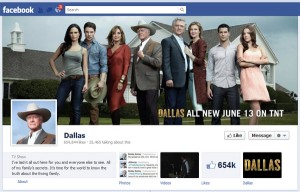The Impact of Social Media on Film and TV Reviews
 Increasingly in recent years, television shows and films are finding it increasingly difficult to muster the continued interest and positive reviews that enable their success. Due to the word of mouth nature on which social media platforms operate, twinned with the average user having direct access to over one hundred other people, bad reviews can spread rapidly. The man on the street has never had so much influence over the reviews which mass culture such as films or television shows receive. Thanks to social media, every user has the ability to become a critic with their own audience. The problem which television shows and films face is how to steer the impact of social media to their own success.
Increasingly in recent years, television shows and films are finding it increasingly difficult to muster the continued interest and positive reviews that enable their success. Due to the word of mouth nature on which social media platforms operate, twinned with the average user having direct access to over one hundred other people, bad reviews can spread rapidly. The man on the street has never had so much influence over the reviews which mass culture such as films or television shows receive. Thanks to social media, every user has the ability to become a critic with their own audience. The problem which television shows and films face is how to steer the impact of social media to their own success.
The head of entertainment, media and global marketing solutions at Facebook, Kay M. Madati, in a recent interview provided insight into the issue. He stated that the five largest American TV stations, CW, ABC, Fox, CBS, NBS, will collectively launch between 25 and 30 new TV series each season. The problem is that of these shows only around six will survive to the second series or season. He also revealed that even with popular television shows, the ratings and viewings which these shows receive is on the decline. “Even shows that are considered hits… are receiving lower and lower rankings each year.”
 Madati revealed that the challenge popular culture such as films or TV shows face is “How do you get people aware of your content across multiple platforms?” In real terms this means how do you use social media to get people to tune into shows on premiere night or persuade users to watch films in the cinema? Madati suggested that the solution may lay in optimising social media.
Madati revealed that the challenge popular culture such as films or TV shows face is “How do you get people aware of your content across multiple platforms?” In real terms this means how do you use social media to get people to tune into shows on premiere night or persuade users to watch films in the cinema? Madati suggested that the solution may lay in optimising social media.
The real question is how do producers get people to engage via social media? Social media is much more than a word of mouth forum. By its very nature social media lends itself to campaigns which are both innovative and eye catching. It is essential that these campaigns keep both current and potential viewers engaged. Madati stated “the audacious challenge that we put to our television partners is this. A show may be on once a week for half an hour. What do you do about keeping that content relevant, and the fans you’re engaging round that content excited and connected when the content is not on television?”
 A recent example of an exciting and engaging social media campaign was launched by TNT. The campaign was launched surrounding the stations re-launch of the 1978 classic show “Dallas”. The challenge was how could the producers engage a new audience with a show they may be unfamiliar with? Facebook worked in conjunction with the producers, to launch a Timeline friendly format that utilised the then new feature to tell the historical story of the program. This was not all the team did, they also used the voice of the shows key character, J.R. Erwig to tell the story. As a result of this successful campaign, the show’s page went from 30,000 to in excess of one million in the course or four months. Subsequently the show became the number one cable show in America.
A recent example of an exciting and engaging social media campaign was launched by TNT. The campaign was launched surrounding the stations re-launch of the 1978 classic show “Dallas”. The challenge was how could the producers engage a new audience with a show they may be unfamiliar with? Facebook worked in conjunction with the producers, to launch a Timeline friendly format that utilised the then new feature to tell the historical story of the program. This was not all the team did, they also used the voice of the shows key character, J.R. Erwig to tell the story. As a result of this successful campaign, the show’s page went from 30,000 to in excess of one million in the course or four months. Subsequently the show became the number one cable show in America.
As with anyone attempting to use social media for commercial interests, building and maintaining engagement is the key. Madati advised TV shows to provide content connected and relevant to the TV show, which is not necessarily connected directly to the plot. He also emphasised the necessity of doing this between seasons to keep up viewer interest.
When it came to films, Madati stated the key was to engage with potential viewers in the film’s opening week. Whilst keeping a keen eye on social integration with users which ensures future viewings. An excellent recent example is the film Argo. Madati states that the producers successfully utilised social media in order to maintain a consistent audience. Due to this the film has become a word of mouth success and continues to draw in viewers.
